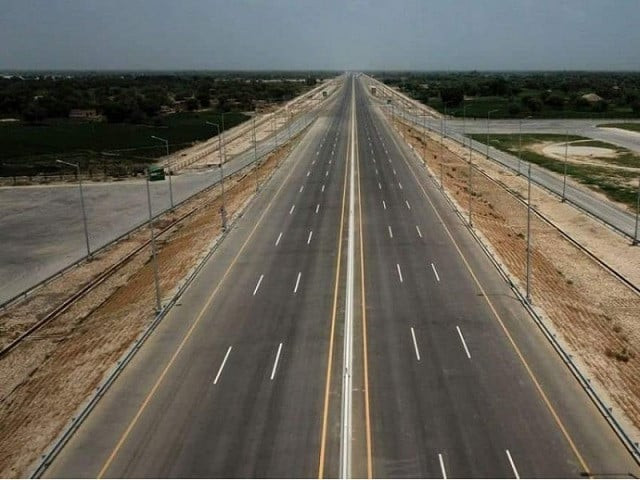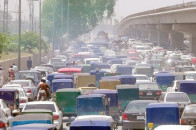Call for development of backward areas
Researchers and academics asked to conduct research to find solutions to local problems

Speakers have urged politicians to redirect resources towards the least developed regions of Pakistan instead of the developed areas from where they get votes and reach the parliament.
They were speaking at the concluding session of a conference arranged by the Pakistan Institute of Development Economics (PIDE) under its “Research for Social Transformation and Advancement’ (RASTA) programme”, held in Bhurban, Murree.
The research moot comprised of diverse research themes, including energy issues, urban development, technology, and public service delivery, social sector development, markets and regulation, the political economy of development and reforms and sludge — the administrative burden.
In his concluding remarks, PIDE Vice-Chancellor and RASTA Research Advisory Committee (RAC) Chairman Dr Nadeem ul Haque said that the RASTA was an evolutionary process and “our researchers and academics must conduct research and find local solutions to our local problems”. He said that “we can follow global research but it has to be adopted as per our local needs and requirements”. Dr Haque said that “there is no looking back, we must only look forward to progress.
He further said that local flavour to the research “is all that we need”. “RASTA has researchers from across the country. At the first PIDE-RASTA conference, we heard things we had never heard before. What does it tell? It implies that research has to be inclusive to make a real impact,” he said.
Earlier, during the session, Quaid-i-Azam University Associate Prof Dr Anwar Shah presented his paper on ‘Informal Markets and Competition: An Analysis of Barriers to Entry of Legal Framework and Behavioral Attitude towards Khokha Markets in Pakistan’. Dr Shah opened his talk by saying that Khokas (small vendor shops) is one of the key segments of the informal economy in Pakistan. “Khokas provide jobs to many people and facilitate consumers in doing various types of transactions. However, entry to barriers put a bar on such access, leading to inefficiencies. The elimination of barriers to entry is important for promoting competition in the market and enhancing the welfare of people,” he said.
Renowned constitutional lawyer and political thinker Umar Ijaz Gillani presented his research on ‘Regulatory Environment of the Professions in Pakistan: An Outline’. It said that the regulatory environment of professions meant fixing lawyers, doctors, town planners and so on.
“As these all together make up systems and rather broken ones at present need to be fixed. All these groups have different environments but the essence of all is the same,” he said.
Dr Nasir Iqbal and co-authors presented their study titled “Revitalization of the street economy in Pakistan: The case of Islamabad”. The study explored the legal and economic dynamics of the street economy (SE) in the Islamabad Capital Territory (ICT).
“Pakistan has a large SE operated by individuals and micro-enterprises across the country, mostly in urban areas. There are no precise estimates on the quantum of SE due to the informal nature in Pakistan. It is vital to gauge the contribution of SE in the overall economic landscape of the country due to the overwhelming involvement of individuals and micro-enterprises,” they said while quoting their study.
Dr Ahmed Waqar Qasim presented the findings of his unique study, titled ‘Sludge: The Administrative Burden’. He explained that unjustified frictions that make it difficult for the people to achieve what they want, frictions that make processes unnecessary difficult, and unwarranted interaction between citizens and public institutions all come under the definition of sludge.
He said that the examples may include complicated application processes, duplicative paperwork and various attestations and so on. He said that it matters because it limits growth. He said that according to the PIDE report, in various sectors, sludge at the national level costs Pakistan 39 per cent of the GDP.
Dr Faiz Ur Rehman presented his paper on “Political Dynasties and Local Economic Development in Pakistan’, co-authored by Nouman Ahmad and Muhammad Nasir. Dr Faiz said that despite the considerable attention paid by successive governments to the underdeveloped regions, intra-regional economic disparities were on the rise in Pakistan.
“While there can be several reasons for exasperating inter-regional inequality across regions, political institutions and politicians may explain a significant size of this inequality. Politicians exercise considerable de facto political power to redirect resources towards their regions which has a substantial cost for the least developed region,” he said adding that “Pakistan is among those countries where the share of elected political dynasties in parliament is one of the highest in the world”.
The authors suggested abolishing discretionary funds and minimising the influence of legislators over PSDP spending.
Prof Adeel Malik presented his paper on ‘The Political Economy of Non-Tariff Protection in Pakistan’. His paper examined the impact of political influence on trade protection in Pakistan. He enunciated that in 2012, Pakistan signed a five-year engagement plan with the European Union that paved the way for its inclusion in the EU’s Generalized System of Preferences (GSP) to allow duty-free access to Pakistan’s exports. “The GSP entailed a major harmonisation of regulatory standards and led to a dramatic increase in the application of non-tariff measures across the entire manufacturing space.
Published in The Express Tribune, March 30th, 2022.



















COMMENTS
Comments are moderated and generally will be posted if they are on-topic and not abusive.
For more information, please see our Comments FAQ